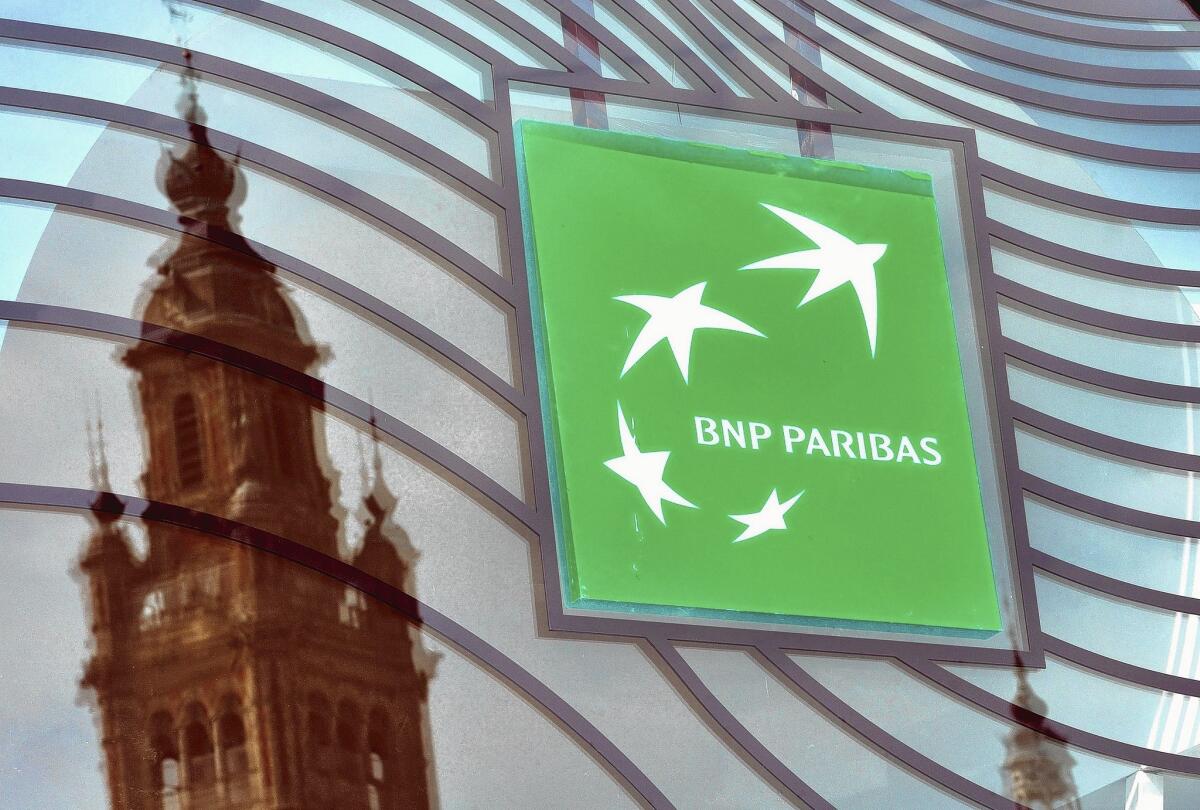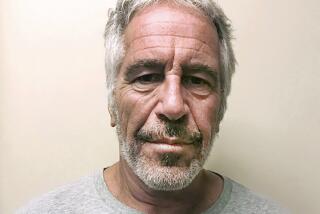BNP Paribas to pay record $8.9 billion in fines

- Share via
French banking giant BNP Paribas is expected to plead guilty to criminal charges and pay a record $8.9 billion in fines to settle accusations it funneled billions of dollars from blacklisted countries through its U.S. operations, said two officials briefed on the matter.
BNP is the parent company of San Francisco’s Bank of the West, which is not expected to be affected by the deal.
The plea could come as early as Monday in the investigation into alleged transfers from individuals and corporations in Sudan, Iran and Cuba in violation of U.S. sanctions, said the officials, who did not want to be identified because the deal with the Department of Justice and other federal and New York state agencies was not final.
Federal and state prosecutors consider the case especially offensive, the officials said, because the financial transactions were enormous and were concealed by falsified records and because numerous bank executives, up to the Paris bank’s chief operating officer, were aware of the transactions.
Bank of the West, the third-largest bank based in California, would be unaffected because the alleged wrongdoing involved the parent company and its branch in New York.
“There’s no evidence Bank of the West was involved,” an official said. “They shouldn’t be impacted.”
Cesaltine Gregorio, a spokeswoman for BNP Paribas, declined to comment.
The bank’s guilty plea will be entered under a 1977 federal law that enables presidents to invoke economic sanctions in response to foreign threats to U.S. security.
The $8.9 billion in fines are expected to cover both civil and criminal wrongdoing, with the latter to include transactions involving Sudan’s huge oil holdings.
The bank disguised the fact that it was processing transactions done in dollars through the U.S. banking system, another official said.
Had the deals been processed in other countries and using other currencies, there would have been no U.S. violations.
As part of the settlement, the top New York state banking regulator, Benjamin Lawsky, is expected to impose at least a six-month restriction on the bank’s ability to perform so-called dollar clearing, a key function for large banks that involves routing international payments.
The payments will not be permitted to be processed through the New York offices where the wrongdoing allegedly occurred.
The bank also will be required to clean house, an official said, firing about a dozen employees involved in the dealings with the blacklisted nations.
BNP Paribas’ chief operating officer, George Chodron de Courcel, already has said he would depart at the end of this month.
The agreement follows a series of smaller settlements with European banks accused of violating U.S. sanctions.
In the highest-profile past case, Britain’s HSBC agreed in 2012 to pay $1.9 billion to settle allegations that it transferred money for regimes regarded as hostile to the United States as well as for drug lords.
But the HSBC settlement drew fire for failing to include criminal charges, as did another case regarded as especially egregious, in which the British bank Standard Charter was fined $300 million for its dealings with Iran.
Compared to those cases, requiring a criminal plea from BNP Paribas is a “sea change,” said William K. Black, a University of Missouri law professor and former senior bank regulator.
Black has criticized the government for its unwillingness to prosecute top bankers for contributing to the economic crisis. Despite the magnitude of the fine and the criminal plea in the BNP case, he noted, the settlement is unrelated to the events leading up to the near-collapse of the global finance system in 2008.
“We still have the record intact,” Black said. “Six years after the crisis, they still have no criminal prosecutions of anybody who contributed to the crisis.”
Twitter: @ScottReckard
More to Read
Inside the business of entertainment
The Wide Shot brings you news, analysis and insights on everything from streaming wars to production — and what it all means for the future.
You may occasionally receive promotional content from the Los Angeles Times.











